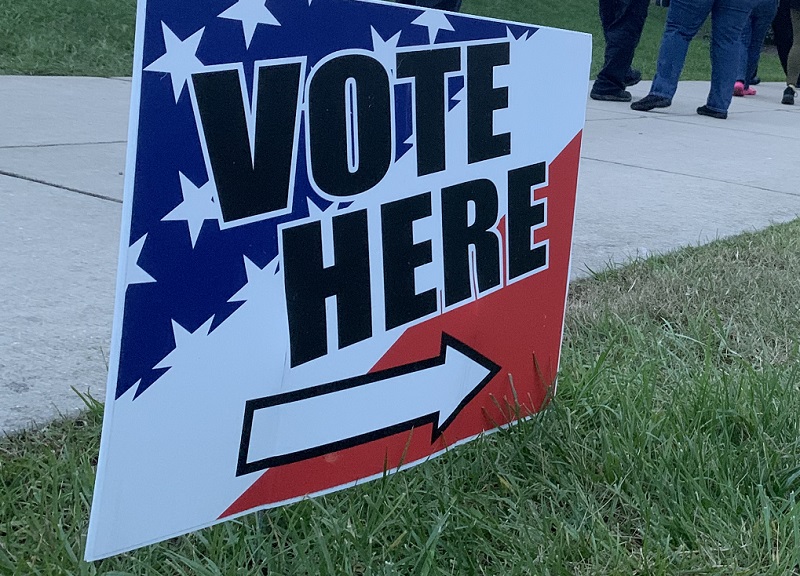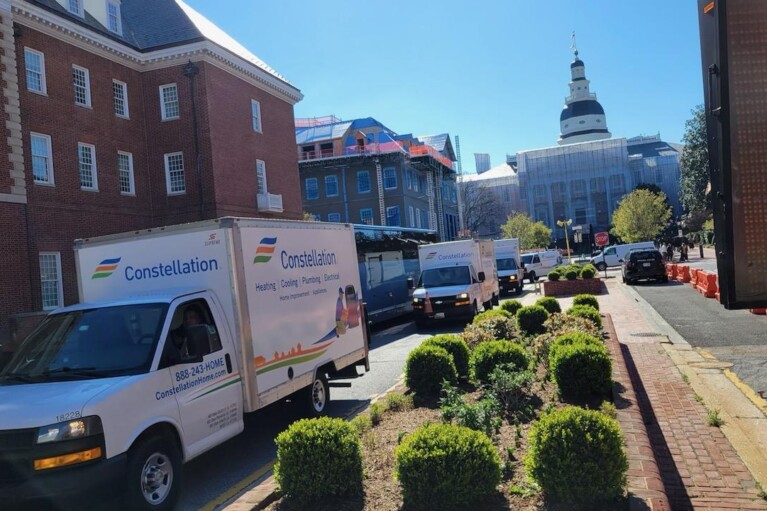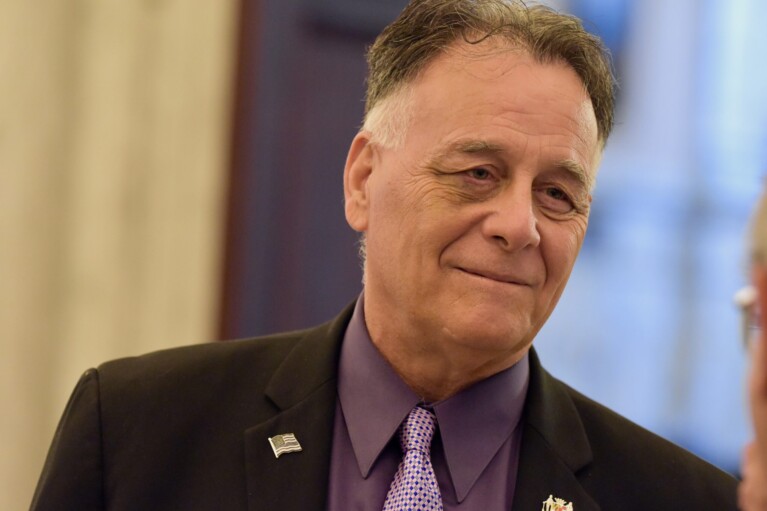Senate Republicans Announce Voter ID, Signature Verification Bills

Republican state lawmakers want to require that voters show some form of identification before casting their ballots.
At a Thursday press conference, Senators Justin D. Ready (R-Carroll), Jason C. Gallion (R-Cecil and Harford) and Minority Leader Bryan W. Simonaire (R-Anne Arundel) proposed a slew of election reforms, citing “major deficiencies” in the 2020 election.
Simonaire said the measures, which include requiring signature verification on mail-in ballots, are meant to build public trust in the state’s election system. Some of those proposals include ensuring that party affiliation is hidden on mail-in ballots, and requiring signature verification for those ballots.
Ready is sponsoring a bill that would require voters to show a form of identification before casting their ballot to verify their name and address. Voters could use a government-issued photo ID, utility bill, bank statement, government check, paycheck, “any other recent government document that shows the voter’s name and address,” a voter notification card or a sample ballot.
And if voters can’t supply the documentation or recently changed addresses, they’ll have to use a provisional ballot under Ready’s proposal.
Advocates have criticized voter ID laws as a form of voter suppression. According to the American Civil Liberties Union, 34 states require voters to show some form of identification before they cast their ballot.
The ACLU argues those laws are discriminatory, since minority voters disproportionately lack ID. According to the ACLU, “up to 25% of African-American citizens of voting age lack government-issued photo ID, compared to only 8% of whites.”
Ready described the bill as a “common-sense measure” to ensure voter trust in elections. Maryland currently has some safeguards in place, including a computer system that scans voter rolls to prevent double-voting. He said the bill’s broad stance on what counts as voter ID would ensure that everyone gets a chance to vote.
Proposed voter identification laws have repeatedly failed in the General Assembly in recent years.
“Whether you believe there was minuscule or massive amounts of voter fraud, the 2020 elections have undeniably shaken the public’s confidence in Maryland’s election process,” Simonaire said.
Unsubstantiated claims of ballot harvesting and voter fraud were widespread during the 2020 election cycle, with former President Donald Trump claiming without evidence that he won the Nov. 3 election.
But voter fraud is exceedingly rare: One study of voter impersonation between 2000 and 2014 found 31 credible instances out of more than a billion ballots cast. And instances of fraud are also minuscule in states that primarily use mail-in ballots. A Washington Post analysis of mail-in elections found just 372 possible cases of voter fraud with roughly 14.6 million votes cast by mail in the 2016 and 2018 general elections — a rate of about 0.0025%.
Still, the Republican senators are looking to crack down on any potential case of fraud. Gallion said he’ll sponsor legislation that would further toughen up the penalties for fraud, including a four-year loss of voting rights.
Maryland election officials are still reviewing the 2020 election. According to a recent report by the State Board of Elections, post-election audits so far have passed the state’s standard for election security.
Still, several glitches occurred during the highly unconventional and largely vote-by-mail primary and general elections in 2020. Every registered voter was automatically mailed a ballot in the primary, and some reported getting their ballots late or receiving ballots for other people. Election officials blamed some of those errors in the primary on the state’s printing vendor, leading the state to get a new vendor for the general election.
Some lawmakers and advocates have proposed permanently expanding mail-in voting, arguing it increases voter participation. Voter turnout soared during last year’s elections, and voters seemed to embrace mail-in ballots and drop-off boxes amid the pandemic.
The Senate Republicans, however, say the state needs to put more safeguards like signature verification in place before permanently expanding mail-in voting. Gallion wants to put limits on who can pick up and deliver mail-in ballots. He’s sponsoring a bill that would require that any “agent designated to pick-up and deliver an absentee ballot must be a family member or part of the immediate household of the voter,” and ban campaign volunteers or candidates from serving as a voter’s agent.
The legislation would also ban a voter’s agent from picking up or delivering more than three mail-in ballots.
Simonaire, who is sponsoring legislation on signature verification and improving the state’s ballot tracking system, charged that election officials need to do more to keep tabs on mail-in ballots.
“As soon as they put it in the mail, there are no safeguards,” Simonaire said. “If you’re not looking for fraud, you’re not going to find it.”
Joanne Antoine, the executive director of Common Cause Maryland, said the quick shift to mail-in voting left some voters confused, but warned against adding “unnecessary hurdles” that may clog up the voting process.
She opposes voter ID laws, and said she’s concerned that signature verification could lead to unexpected troubles for voters since handwriting changes over time.
“A lot of the bills aim to address issues that don’t actually exist here in the state,” Antoine said.




 Creative Commons Attribution
Creative Commons Attribution